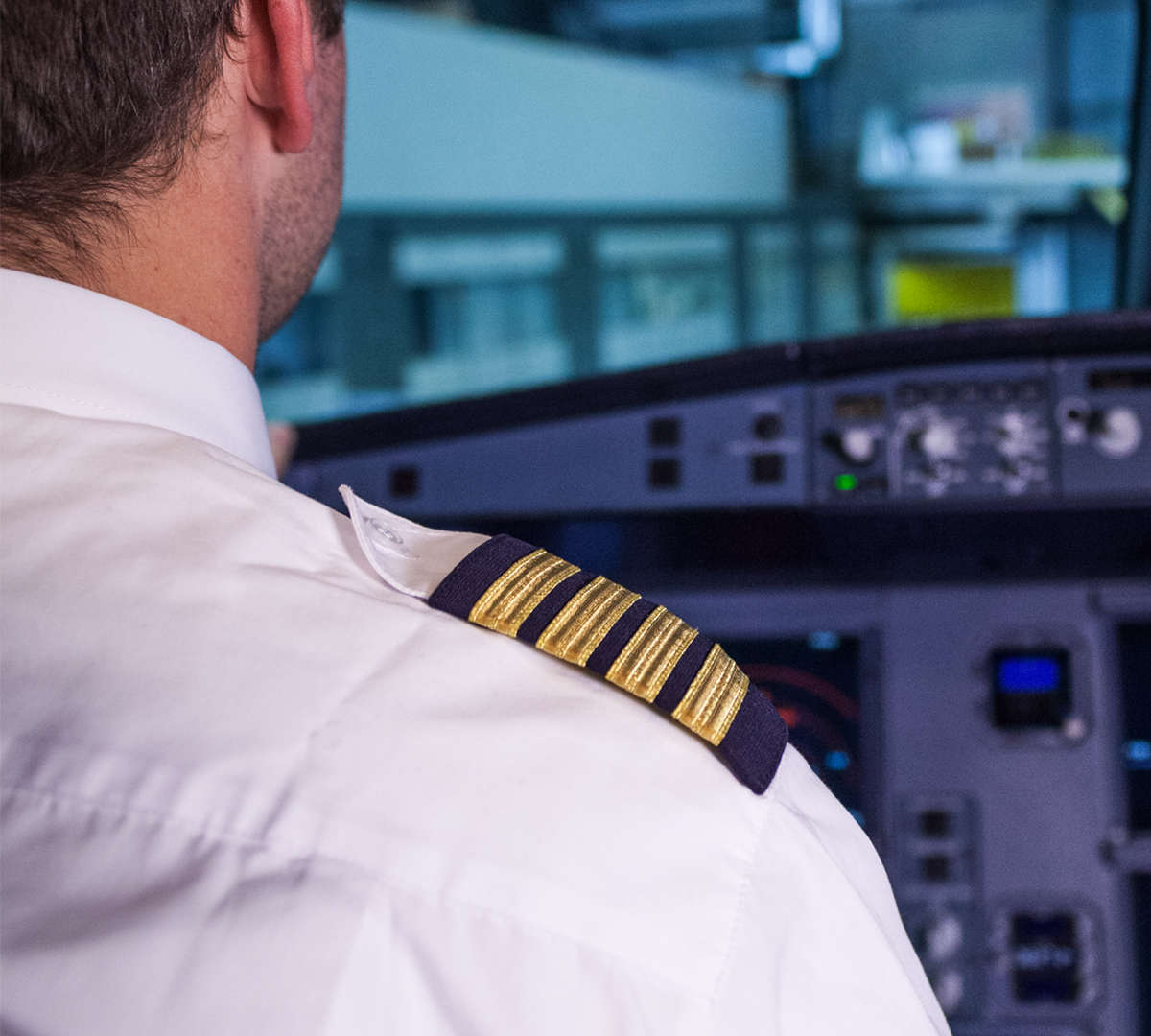Interested in the intricacies of air transportation? Discover "Commandant De Bord: Un Guide Complet De La Profession," a comprehensive guide to the challenging and rewarding profession of airline captain.
Editor's Note: "Commandant De Bord: Un Guide Complet De La Profession" published today provides valuable insights into the role, training, and responsibilities of airline captains, making it an essential read for anyone considering a career in aviation.
Through rigorous analysis and extensive research, we have curated this guide to empower you in making informed decisions about your professional aspirations in aviation.
Key Takeaways:
| Topic | Description |
|---|---|
| Role of an Airline Captain | In-depth exploration of the responsibilities and duties of an airline captain. |
| Training and Qualifications | Detailed overview of the rigorous training and qualifications required to become an airline captain. |
| Career Progression and Advancement | Clear guidance on the potential career paths and advancement opportunities for airline captains. |
| Challenges and Rewards | Honest insights into the challenges and rewards associated with this demanding profession. |
Main Article Topics:
- The Role of an Airline Captain
- Training and Qualifications for Airline Captains
- Career Progression and Advancement for Airline Captains
- Challenges and Rewards of Being an Airline Captain
- The Future of the Airline Captain Profession
FAQ
Prospective airline captains seeking guidance in "Commandant De Bord: Un Guide Complet De La Profession" may encounter various queries before embarking on their career path. This section addresses frequently asked questions to provide clarity and facilitate informed decision-making.

Un guide complet de la batterie rechargeable 18650 - Source cmbatteries.com
Question 1: What are the prerequisites to becoming an airline captain?
To qualify as an airline captain, several essential requirements must be met. These typically include obtaining a commercial pilot's license (CPL), accumulating a minimum number of flight hours, and successfully completing specific training programs, including type ratings for the aircraft to be flown.
Question 2: What is the typical career progression for an airline captain?
The career path for an airline captain typically begins with serving as a first officer or co-pilot. With experience and seniority, individuals may progress to the role of captain, assuming full responsibility for the operation of the aircraft and the safety of passengers and crew.
Question 3: What are the key responsibilities and duties of an airline captain?
An airline captain holds ultimate authority and accountability for the safe and efficient operation of the aircraft. Their responsibilities encompass decision-making, navigation, maintaining crew coordination, ensuring compliance with regulations, and managing emergencies.
Question 4: What are the challenges faced by airline captains?
Airline captains navigate a range of challenges, including demanding work schedules, irregular sleep patterns, potential weather hazards, technical malfunctions, and the management of human factors, such as crew dynamics and passenger interactions.
Question 5: What are the rewards and benefits of being an airline captain?
The profession of an airline captain offers a combination of financial remuneration, job security, opportunities for career advancement, and a sense of accomplishment derived from the responsibility of leading and ensuring the well-being of others.
Question 6: What is the future outlook for the airline industry and the role of airline captains?
The aviation industry is projected to continue expanding, presenting opportunities for aspiring airline captains. Technological advancements and the growing demand for air travel are anticipated to drive the need for skilled and experienced professionals to lead flight operations.
The key takeaways from these FAQs highlight the rigorous training, extensive responsibilities, and diverse challenges inherent in the role of an airline captain. Yet, the profession offers substantial rewards, professional growth opportunities, and a vital contribution to the safety and well-being of passengers.
For further exploration of the topic, we recommend accessing additional resources and engaging in discussions with experienced professionals in the field.
Tips
The Commandant De Bord: Un Guide Complet De La Profession offers valuable guidance for aspiring and current airline commanders. Here are some practical tips to enhance your knowledge and skills:

Un commandant de bord, combien de barrettes - Source www.deplacementspros.com
Tip 1: Continuously Enhance Your Technical Proficiency
Stay abreast of the latest advancements in aviation technology and regulations by attending workshops, conferences, and online courses. Invest time in practicing simulator-based exercises to hone your technical abilities.
Tip 2: Cultivate Effective Leadership Skills
Effective leadership is crucial in commanding a flight crew. Ensure open communication, foster a positive team environment, and inspire confidence in your subordinates. Your leadership style should promote a sense of trust and respect.
Tip 3: Prioritize Safety Above All Else
Safety should be at the forefront of every decision and action taken as a commander. Adhere to established safety protocols, conduct thorough pre-flight inspections, and remain vigilant throughout the flight.
Tip 4: Enhance Your Decision-Making Abilities
Develop a systematic approach to decision-making by gathering relevant information, evaluating options, and considering potential consequences. Utilize data analysis and risk assessment tools to inform your choices.
Tip 5: Communicate Clearly and Effectively
Effective communication is essential for successful flight operations. Ensure clarity in your instructions and acknowledgements, and maintain situational awareness by actively listening to crew communications.
Tip 6: Foster a Culture of Continuous Improvement
Regularly evaluate your performance and seek feedback from peers and colleagues. Be open to constructive criticism and strive to identify areas for growth and improvement. Encourage your crew to engage in post-flight debriefings to enhance collective learning.
Conclusion
By embracing these tips, aspiring and current airline commanders can elevate their professional capabilities, prioritize safety, enhance their leadership skills, and contribute to the smooth and efficient operation of their flight crews.
Commandant De Bord: A Comprehensive Guide to the Profession
Commandant de Bord, a crucial aviation role, encompasses various essential aspects that shape the profession. This guide delves into six key dimensions to provide a comprehensive understanding:
- Leadership
- Decision-Making
- Safety Management
- Communication
- Crew Resource Management
- Technical Expertise
Leadership in this role involves inspiring and guiding the crew to achieve safety and operational excellence. Decision-making under pressure and managing emergencies require sound judgment and quick thinking. Safety management prioritizes the well-being of passengers and crew, ensuring adherence to safety protocols. Effective communication fosters collaboration and coordination within the cockpit and with air traffic control. Crew resource management enables the commandant to utilize the skills and experience of the entire crew. Finally, technical expertise encompasses in-depth knowledge of aircraft systems and operational procedures.

Découvrez le guide complet de la chiromancie et savoir interpréter les - Source www.pinterest.com
Commandant De Bord: Un Guide Complet De La Profession
"Commandant De Bord: Un Guide Complet De La Profession" provides a comprehensive exploration of the role and responsibilities of a Ship's Master, encompassing various aspects of ship management, navigation, safety, and leadership. Understanding this profession is crucial for ensuring the safe and efficient operation of vessels at sea, as the Ship's Master bears the ultimate responsibility for the ship and its crew.

Un guide complet de la technologie des caméras de surveillance - Source axelkahn.fr
The guide covers essential topics such as shipboard management, including financial management, personnel management, and maintenance planning. It also delves into navigation and pilotage techniques, emphasizing the importance of accurate navigation for safe passage. Moreover, the guide highlights the critical role of safety management in preventing accidents and environmental incidents, including compliance with international regulations and best practices.
The practical significance of this understanding lies in the fact that a well-trained and competent Ship's Master can effectively manage and navigate the ship, ensuring the safety of crew, passengers, and cargo. They can also anticipate and respond to emergencies, make informed decisions, and maintain a high level of professionalism.
Conclusion
"Commandant De Bord: Un Guide Complet De La Profession" serves as an invaluable resource for aspiring and experienced Ship's Masters, providing a comprehensive understanding of their role and responsibilities. The guide emphasizes the importance of effective ship management, safe navigation, and maintaining a high level of safety and professionalism. By embracing the insights provided in this guide, Ship's Masters can enhance their capabilities and contribute to the safe and efficient operation of vessels at sea.
The continuing advancement of technology and the increasing complexity of maritime operations necessitate ongoing professional development for Ship's Masters. Embracing new technologies, regulations, and best practices will ensure that they remain at the forefront of their profession and continue to meet the challenges of modern seafaring.



